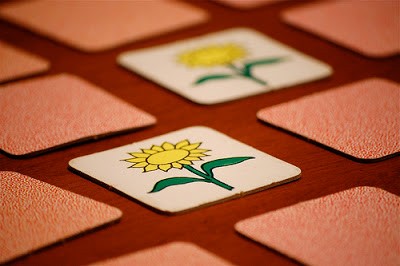
Let’s jog our memories
In Greece, an early form of ideographic characters – Linear A – was developed by 1750 BCE when the Minoans inhabited the region. Around 1400 BCE, the Mycenaeans (who conquered the Minoans) adapted this primitive script into what is called Linear B. When Greece fell into the Dark Ages (1100 – 800 BCE), no evidence of the use of writing is found.
We take writing for granted nowadays so trying to fathom how life must have been without any kind of written records is a tough call. The oral tradition was so important to those primeval Greeks that there even was a goddess dedicated to memory: Mnemosyne. As Vernant (1983) points out, memory is an elaborate function in our brains and is interconnected to psychological aspects, such as our perception of time and the self.Mnemosyne also presides over poetry. Indeed, before the advent of writing, poems and verses were an ingenious way to make information available to everyone, from generation to generation. Knowing and remembering required no disambiguation at the time. And in those days, poets’ creations were centred in the past, depicting facts belonging to the Heroic Age or even beyond that – the time when the universe was created.
Evoking the past brings what no longer exists back to life. Our memory is then responsible for breaking the barrier separating present and past and for bridging the gap between the world of the living and the world of the dead. A descent to Hades (home of the dead) in order to learn and become better-informed. And Mnemosyne bestows on those willing to take the trip down this memory lane the privilege of coming back to Earth (home of the living) safe and sound.
In the oracle of Labadaea, for example, consultants were invited to take a harrowing trip to a chamber that would connect them to the underworld. Those who had journeyed into the world of the dead were taken to two springs called Mnemosyne (memory) and Lethe (forgetfulness). By drinking the waters from the first spring, they would retain in their memory everything they had experienced and learnt. On the other hand, by drinking from the second spring, not only would they forget all they had seen in the underworld but also what they had experienced in their lives on Earth.
Forgetfulness is seen as a deadly water in this account. Death is then defined as not being able to retrieve our memories.
In Plato’s Republic the same theme appears in the description of an arid plain called Lethe where the souls of the deceased awaited for their next incarnation. Plato tells us of the River Ameles from which waters thirsty souls would quench their thirst but forget everything in their memories as a consequence. In order to break free from the continuous cycle of incarnations, souls should drink from the Lake of Memory in order to retain all their experiences from past lives in their memory and become immortal.
Indeed, those who lose the ability to recall events from memory due to an illness or old age seem to live in a sort of psychological vegetative state. Unable to bridge their past and their present, they cannot reflect upon their lives, ponder their actions, learn with their mistakes, come to conclusions and plan for the future. In short, losing their individualities and halting the mental processes responsible for their individuation.
Plato and Pythagoras before him waxed euphoric about the importance of exercising the memory. Pythagoreans were supposed to conduct a minute anamnesis of their day, every day so as to exercise and harness their memory. They believed that exercising their memory was a sort of purification to bring spiritual relieve. Pythagoras was said to have the power to recall even his past lives!
And it is sort of funny how little do we jog our memory nowadays. In an age when additions and multiplications are easily made by a calculator, our friends’ birthdays are conveniently displayed on a computer screen, pictures have captions, social networks display trivial details of our recent and distant past for everybody to pry on, we don’t need to commit a lot of information to memory. Would it be a sign that we are all dead already?
Reference
Vernant, J.B. Mythe et pensée chez les Grecs: Etudes de psychologie historique (Paris), 1965